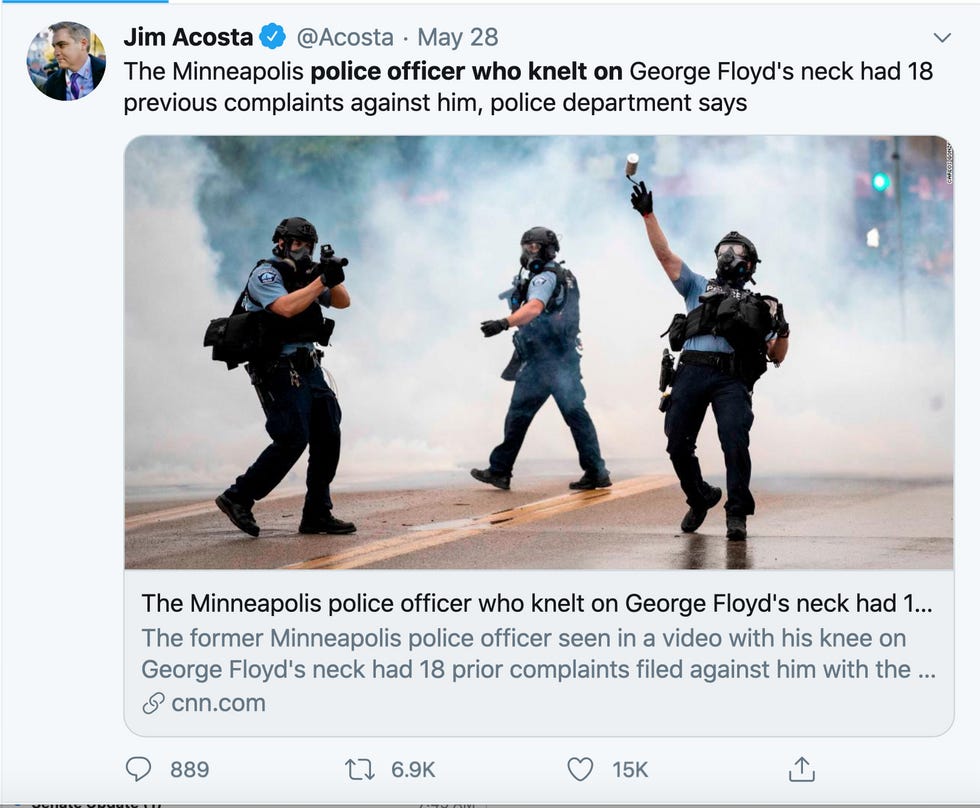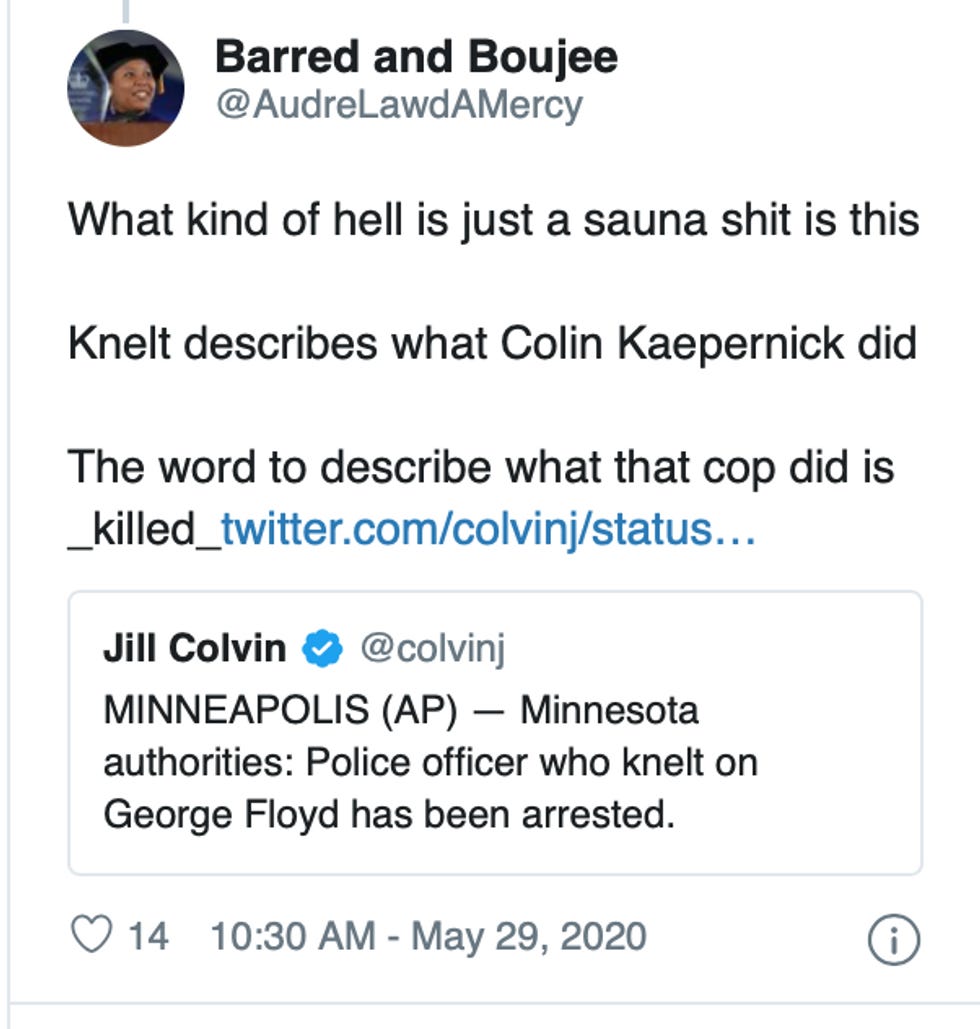Derek Chauvin Killed George Floyd. Is That So Hard To Say?
Apparently for some people.
The press has struggled recently over how to describe last week's daylight murder of George Floyd. CNN, the Associated Press, and other perfectly respectable news organizations have referred to Derek Chauvin as “the Minneapolis police officer who knelt on George Floyd's neck." Some headlines don't even make it clear that this resulted in Floyd's death. It's just something Chauvin did. It sounds rude but not homicidal. Chauvin might not get invited to luncheon at Lady Agatha's because he lost control of himself and knelt on Lord Henry's neck that one time.

Twitter

Twitter

Twitter

Twitter
There is some rationale for the vague and passive wording. As fact checker Erin Biba noted, media outlets can't legally use the word “murdered" until there's a conviction. Biba pointed out that if Chauvin isn't convicted -- and precedent unfortunately argues for his acquittal -- then he could sue the offending publications and win.

Twitter
But what about killed? That should work because Floyd is dead and Chauvin killed him. It's on video and everything. That's apparently also complicated because a likely key part of Chauvin's defense is that his kneeling on Floyd's neck isn't the specific cause of his death. Friday, the Hennepin County medical examiner said the "preliminary autopsy found no evidence that George Floyd died of strangulation and traumatic asphyxia."
The medical examiner said Floyd had underlying health conditions, including coronary artery disease and hypertensive heart disease.
"The combined effects of Mr. Floyd being restrained by the police, his underlying health conditions and any potential intoxicants in his system likely contributed to his death," the medical examiner reported .
Fred Sanford on Police Brutality www.youtube.com
Chauvin pressing his knee into Floyd's neck contributed to his eventual death from a stroke or massive heart attack. Floyd was a dead man walking who would've eventually expired -- at worst -- 15 or 20 years from now and maybe in his own home or in a hospital, surrounded by loved ones. He could've died peacefully and not on a dirty street crying for his late mother, but I guess these are subtleties. What's important is that Floyd wasn't healthy enough to survive extended torture. That's how the police tried to hand wave Eric Garner's death.
" A Medical Perspective on the Garner Tragedy " written by a surgeon who specializes in morbidly obese patients, G. Wesley Clark, MD, and published in "The American Thinker" on December 8, 2014, states "…I believe that the cause of Mr. Garner's death was not 'police brutality' or negligence, but rather the unfortunate synergy between his disease of morbid obesity and actions most police perform countless times with onlytransient discomfort to the arrestee."
Last I checked, most black people are mortal, and our healthcare's for shit. This probably makes it technically impossible for cops to ever actually “kill" us. They just happen to be there, like Julia Roberts in bad movies.
When cops are killed, the New York Times finds a way to avoid mincing words. Notice its headline regarding the 2016 shooting deaths of Dallas police officers.

New York Times
This is framed in the Dallas police chief's words. The Timescould've attributed more forceful wording to Hennepin County Attorney Mike Freeman, who's trying to convict Chauvin for something more serious than casual kneeling.
The media probably doesn't want to offend the police. They want to remain “objective," even though Chauvin isn't likely to win a defamation suit because the freaking New York Times described him in a headline as an accused killer. Chauvin's wife already filed for divorce. Women don't leave men for kneeling. They leave motherfuckers who kill people.
Follow SER on Twitter .
Wonkette is ad-free and relies entirely on the kindness of strangers. Please subscribe, donate, and otherwise help as you're able.



Back in the 1960s people like Chauvin and the other three from his Animal Farm were given an Orwellian name. The only difference is in the 1960s there were no smartphones to record their acts.
And we can rest assured that if during "enhanced interrogation" the subject happpened to die, the death could be ruled "natural causes" if it looked like a stroke or a heart attack to the coroner.